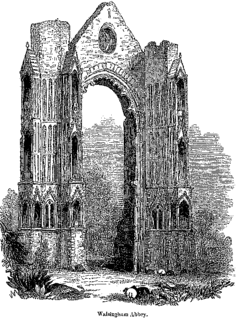May 25th
St. Aldhelm, B.C.
Collect
O GOD, who as on this day dist exalt thy blessed Bishop, Saint Aldhelm to everylasting felicity: we pray Thee, that by his merits and intercession, Thy mercy may bring us unto that place whither he is gone before. Through...
For the Legend:
From the Account of St. Aldhelm's Life by William of Malmesbury
Anglia Sacra, xi, I
ALDHELM, who was a Saxon of royal blood, took the habit of a monk in the Monastery at Malmesbury. But he resorted again and again to Canterbury (see below), to sit at the feet of the Abbot Hadrian, and so advanced under his instruction, that not only himself became famous as a teacher, but was also the first Englishman who ventured on publishing books. According to the testimony of Bede, he was a man of wide and varied learning, a brilliant speaker, and wonderfully well read both in ecclesiastical and worldly writers.
He read often, and prayed constantly, so that, to use his own expression, whilst he read, he seemed to hear God speaking to him, ane whilst he prayed, himself did speak to God there present. He was indifferent to hunger, and careless about money. Further, he as far as possible remained inside his monastery, where he proclaimed an unceasing war against idleness and desire. However, when a Church Synod had discussed the corrupt doctrines of the British Christians, and had come to the unanimous conclusion that it was better to lead the schismatics by reason than to drive them by force, Aldhelm took upon himself the task of confuting their errors. This he did by writing a book, which was the means of leading back many of the wanderers into the bosom of the Universal Church.
After the death of Saint Hedda, Bishop among the West-Saxons, Aldhelm was induced, against his own wishes, to accept the See of Sherborne. When he entered on this sphere of duty, he already felt that the end of his life was near, and, to make the bst of what time remained, he preached day and night, visited about his diocese, and practiced fasting, and the like, as much as in the prime of his life. He died four years after his consecation as bishop, in the year of our Lord's Incarnation 709, and was bruied in the Church of Saint Michael the Archangel at Malmesbury.
Monday, May 28, 2007
Subscribe to:
Post Comments (Atom)



No comments:
Post a Comment